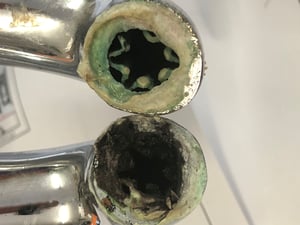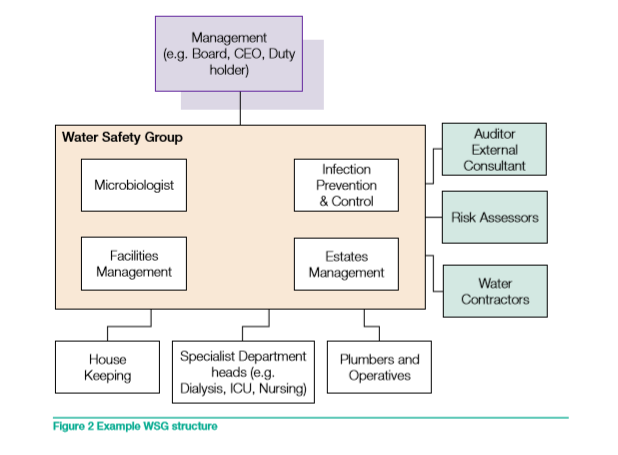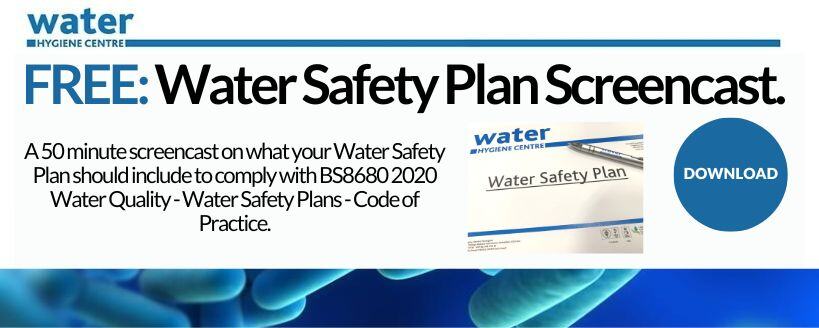Confidence in your Authorising Engineer (AEW) with their knowledge and experience can play a key part in successful water safety management. AE duties are defined in the Department of Health’s guidance Health Technical Memorandum 00 [HTM00]. The role can be summarised as an independent auditor and an assessor of competency & performance.
In this blog, we discuss some examples of how an Authorising Engineer for Water Systems, AE(W), may be called upon by the organisations they are appointed by and how the AE(W) ultimately can help improve levels of compliance within organisations.
The Authorising Engineer (Water)
According to HTM00 the role of an AE, in any discipline or ‘service’, includes:
- Providing independent advice following the current, relevant legislation, codes of practice, standards and technical guidance;
- Assessing the competency of individuals before their appointment in key roles;
- Monitoring the performance of the service – how well does the service meet the operational requirements for function and safety?
- Undertaking an annual management audit, that is issued to the RP.
HTM04-01 “Safe Water in Healthcare Premises” does not elaborate, the guidance only stipulates that the AE (W) should:
- Be a member of the Water Safety Group, and
- Provide services following the HTM04-01: Safe water in healthcare premises and the HSE’s HSG274 Technical Guidance Part 2.
It’s a very open brief and one that is often interpreted in different ways.
In practice, the level of support provided by the AE(W) is often proportional to the extent of the water safety difficulties faced by the organisation and the competency of the key members of staff.
The Water Safety Group
Water safety has historically been viewed as “the management of Legionella” and was typically seen as an operational estates issue but more recent developments have seen the onus shift towards the end user & the care of patients.
 This is partly due to the concern with respect to Pseudomonas aeruginosa and other waterborne pathogens but also as increased awareness of the root causes of Legionella problems places further emphasis on the regular use of outlets as a preventative measure.
This is partly due to the concern with respect to Pseudomonas aeruginosa and other waterborne pathogens but also as increased awareness of the root causes of Legionella problems places further emphasis on the regular use of outlets as a preventative measure.
In our experience, those healthcare organisations that have regular positive representation from the full range of stakeholders are more successful in managing their water systems' safety.
In addition to operational estates departments, this includes:
- Infection Prevention & Control – spreading the message and enforcement (including communication across the modern “mixed-management” estate (i.e. retained estate, NHS PS & PFI etc.)
- Consultant Microbiologist – credibility and authority;
- Soft FM – cleaning standards, audits, and cleaning staff training;
- Capital Projects – low-risk designs, consideration of potential issues at the design stage, before work begins and good management during construction and commissioning.
Figure 2 from the HTM04-01 Part B shows the AE(W) (i.e. auditor external consultant) outside but closely linked with the Water Safety Group.
The document states in Paragraph 6.6 that the Water Safety Group "would normally involve representation" from "an Authorising Engineer (Water) / Independent Adviser" (among others).
As part of this role the AE(W) will:
- Have input on policy and procedures ensuring that these follow the relevant guidance and, where applicable, statutory requirements;
- Monitor whether the Water Safety Group itself functions as it should, following the Water Safety Group terms of reference;
- Deliver & explain the findings of their annual Water Safety Audit.
Often the Authorising Engineer (Water) provides a sounding board for the Water Safety Group, offering an impartial perspective and, in some cases, an element of benchmarking. In cash-strapped public services, the question we may be asked is:
“How do we compare to others?”.
 An Authorising Engineer (Water) might even be able to recount examples of good practice, perhaps, as well as the cautionary tales that we are better known for… Every AE(W) has a collection of photographs showing all sorts of horrors ranging from elementary plumbing mistakes to incredible microbiological growths!
An Authorising Engineer (Water) might even be able to recount examples of good practice, perhaps, as well as the cautionary tales that we are better known for… Every AE(W) has a collection of photographs showing all sorts of horrors ranging from elementary plumbing mistakes to incredible microbiological growths!
In addition, an Authorising Engineer (Water) may provide other services including incident investigations, Legionella training, review of water safety plans and/or procedures, design reviews, and attendance at enforcement meetings etc.
The Water Hygiene Centre can draw on the experiences of a team of Authorising Engineers (Water) with varied professional backgrounds amounting to well over 80 years of combined experience in the field of engineering, building services, health & safety, and estates management. All of whom are actively providing AE(W) services to our clients.
In Part 2 we discuss how an Authorising Engineer (Water) may be called to assist the organisations they serve.
Feel free to reach out if you have any questions about this blog or if you would like to consult with one of our experts for further advice on water hygiene.
Editors Note: The information provided in this blog is correct at the date of original publication – August 2019 (Revised March 2024).
Image by Gerd Altmann from Pixabay
© Water Hygiene Centre 2024










